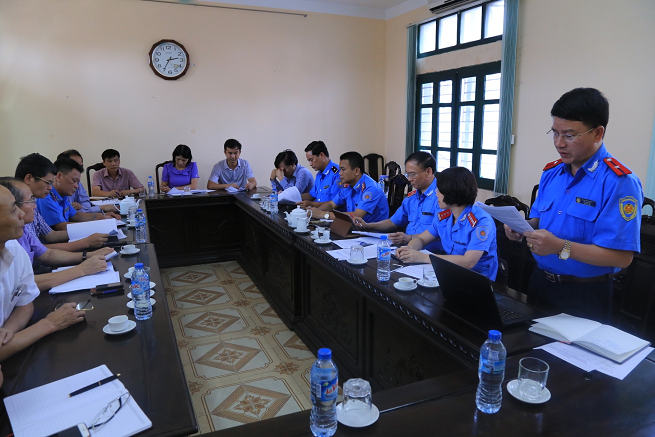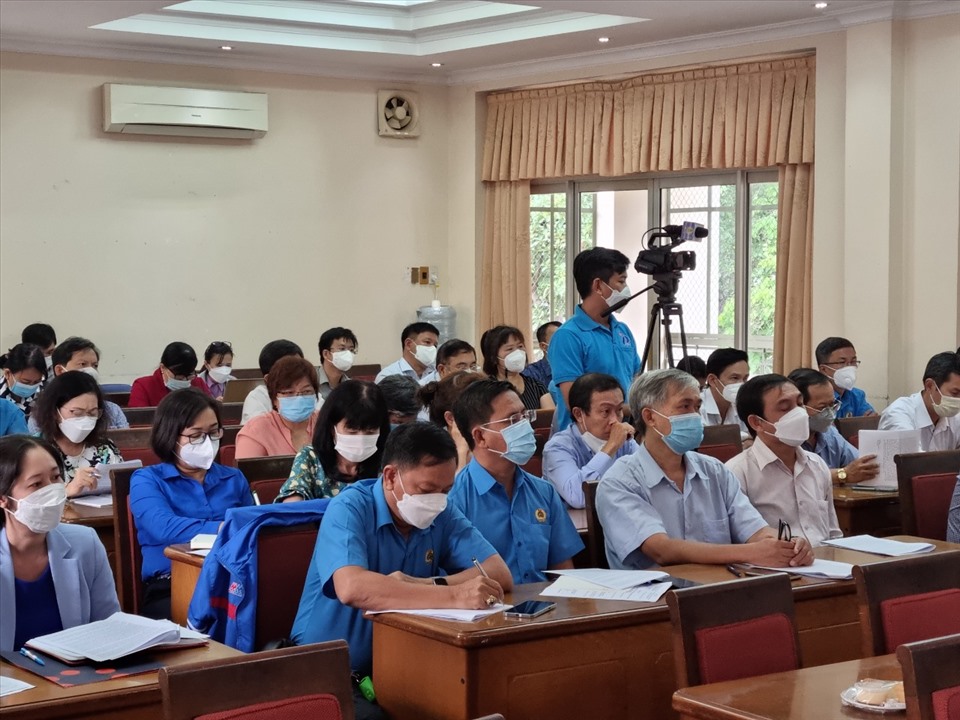Before December 15, 2020, officials and public employees at agencies and public service providers must complete the year-end 2020 quality evaluation and classification. LAWNET sends to esteemed Customers and Members the guidelines for assessment and classification the year-end 2020 quality of officials.

Vietnam: Guidelines for assessment and classification of official performance at the end of 2020 (Illustrative photo)
1. Authority for assessment and classification of Vietnamese officials
According to Article 16 of Decree 90/2020/ND-CP on the assessment and classification of officials and public employees, the authority to assess and classify the quality of officials is defined as follows:
- The assessment and classification of the quality of the head of an agency, organization, or unit is carried out by the head of the directly managing superior agency;
- The assessment and classification of the deputy head and officials under management are carried out by the head of the agency using the officials.
2. Criteria for classification of Vietnamese officials
From Articles 8 to 11 of Decree 90/2020/ND-CP, the specific criteria for classifying the quality of officials are regulated as follows:
|
Level |
Officials without leadership positions |
Officials with leadership positions |
|
Outstanding completion of tasks |
- Adhering well to regulations on political ideology, ethics, lifestyle, work style, working discipline, and organizational discipline; |
- Adhering well to regulations on political ideology, ethics, lifestyle, work style, working discipline, and organizational discipline; |
|
Good completion of tasks |
- Meeting criteria in political ideology, ethics, lifestyle, work style, working discipline, and organizational discipline; |
- Meeting criteria in political ideology, ethics, lifestyle, work style, working discipline, and organizational discipline; |
|
Completion of tasks |
- Meeting criteria in political ideology, ethics, lifestyle, work style, working discipline, and organizational discipline; - Fulfilling all task-related criteria stipulated by law, according to the set plan, or as specifically assigned, with no more than 20% of criteria failing to meet quality, timeliness, or efficiency standards. . |
- Meeting criteria in political ideology, ethics, lifestyle, work style, working discipline, and organizational discipline; |
|
Failure to complete tasks
|
- Exhibiting signs of political, ethical, or lifestyle degradation, self-evolution, or self-transformation as evaluated by the competent authority; |
- Exhibiting signs of political, ethical, or lifestyle degradation, self-evolution, or self-transformation as evaluated by the competent authority; |
3. Procedure for assessing and classifying the quality of officials
According to Article 18 of Decree 90/2020/ND-CP, the procedure for assessing and classifying the quality of officials consists of four specific steps as follows:
Step 1: Self-assessment and classification by the official
Officials prepare a self-assessment report on work results according to the assigned tasks in the standard form, Appendix No.02 attached to Decree 90/2020/ND-CP.
Step 2: Remarks and assessment by the agency
At the workplace, the agency, organization, or unit where the official works will hold a meeting to comment, assess the official's quality. The official presents the self-assessment report, members in the meeting provide feedback, and these comments must be recorded in minutes and approved.
Step 3: Consideration and decision on assessment and classification
The head of the agency, organization, or unit, based on opinions expressed in the meeting, decides on the content of the assessment and the classification level of the official's quality.
Step 4: Written notification
The competent authority for assessment will notify the official in writing and publicly disclose the assessment results within the agency, organization, or unit where the official works. The form of disclosure prioritizes electronic environments.
4. Timing for the annual assessment and classification of officials
According to Article 20 of Decree 90/2020/ND-CP, the timing for the annual assessment and classification of officials is conducted before December 15 each year, before the assessment and classification of party members and the annual review of commendations and awards of the agency, organization, or unit. For public service providers operating in fields of education, training, and other sectors concluding their work year before December, the head of the service provider will decide on the timing for assessment and classification of public employees.
>>> See more: Assessment and Classification Form for Officials and Public Employees at the end of 2020
Le Vy
 Article table of contents
Article table of contents
![[InfoGraphic] 6 forms of discipline for officials and public employees under Decree 71/2016/ND-CP](https://cdn.lawnet.vn//uploads/NewsThumbnail/2016/07/12/1319291-01.png)









.Medium.png)
.Medium.png)
.Medium.png)
.Medium.png)
